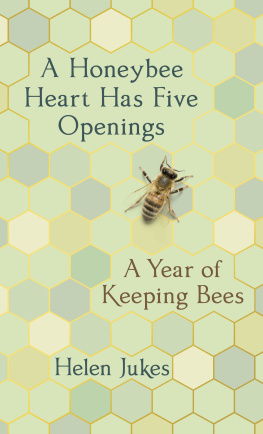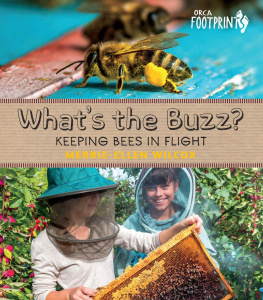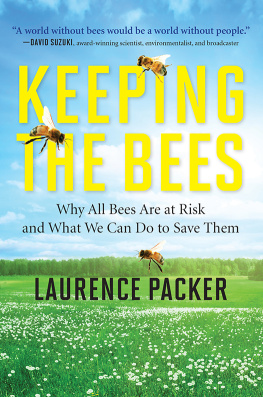Helen Jukes - A Year of Keeping Bees
Here you can read online Helen Jukes - A Year of Keeping Bees full text of the book (entire story) in english for free. Download pdf and epub, get meaning, cover and reviews about this ebook. year: 2020, publisher: Knopf Doubleday Publishing Group, genre: Science. Description of the work, (preface) as well as reviews are available. Best literature library LitArk.com created for fans of good reading and offers a wide selection of genres:
Romance novel
Science fiction
Adventure
Detective
Science
History
Home and family
Prose
Art
Politics
Computer
Non-fiction
Religion
Business
Children
Humor
Choose a favorite category and find really read worthwhile books. Enjoy immersion in the world of imagination, feel the emotions of the characters or learn something new for yourself, make an fascinating discovery.
- Book:A Year of Keeping Bees
- Author:
- Publisher:Knopf Doubleday Publishing Group
- Genre:
- Year:2020
- Rating:3 / 5
- Favourites:Add to favourites
- Your mark:
- 60
- 1
- 2
- 3
- 4
- 5
A Year of Keeping Bees: summary, description and annotation
We offer to read an annotation, description, summary or preface (depends on what the author of the book "A Year of Keeping Bees" wrote himself). If you haven't found the necessary information about the book — write in the comments, we will try to find it.
A Year of Keeping Bees — read online for free the complete book (whole text) full work
Below is the text of the book, divided by pages. System saving the place of the last page read, allows you to conveniently read the book "A Year of Keeping Bees" online for free, without having to search again every time where you left off. Put a bookmark, and you can go to the page where you finished reading at any time.
Font size:
Interval:
Bookmark:
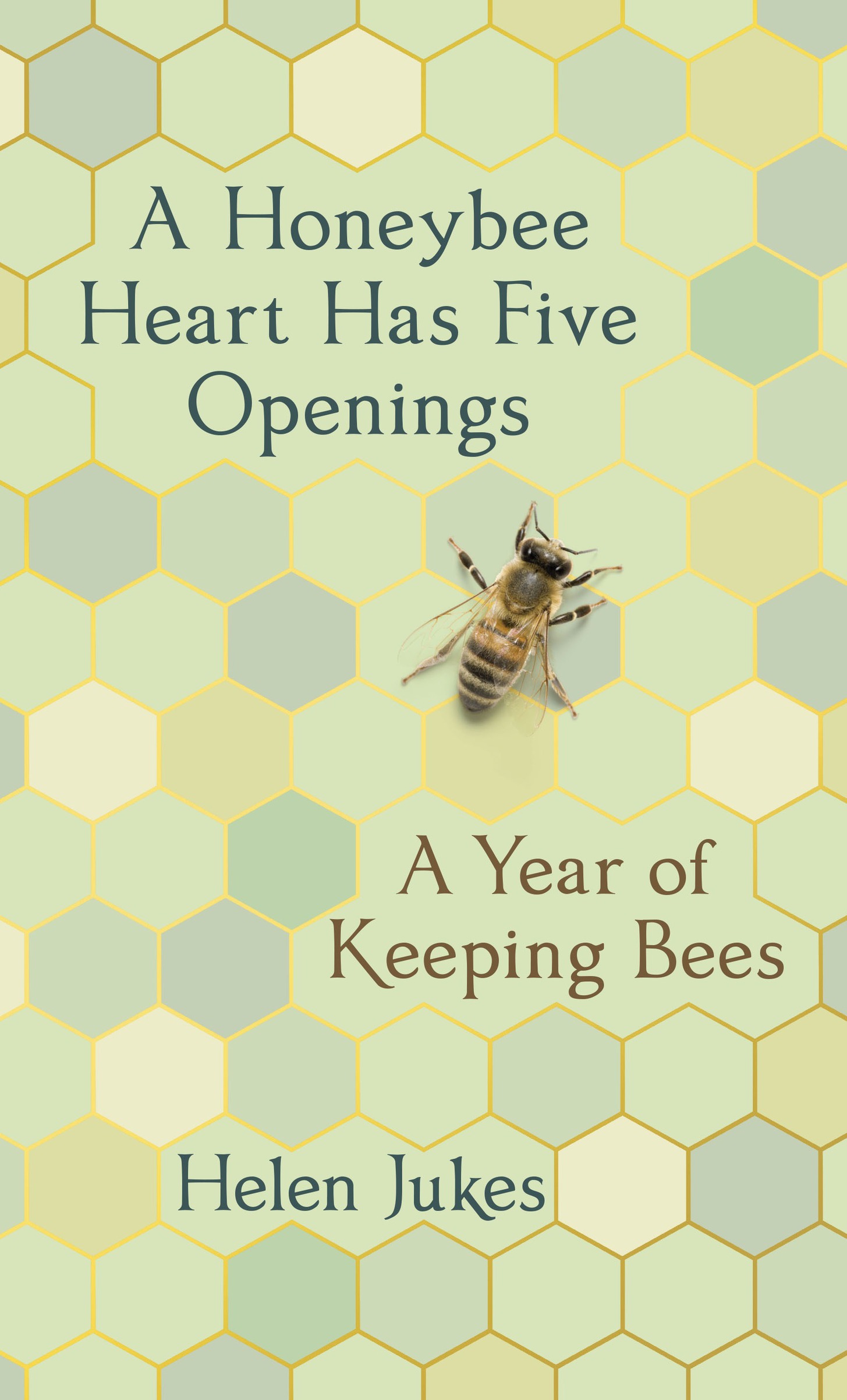
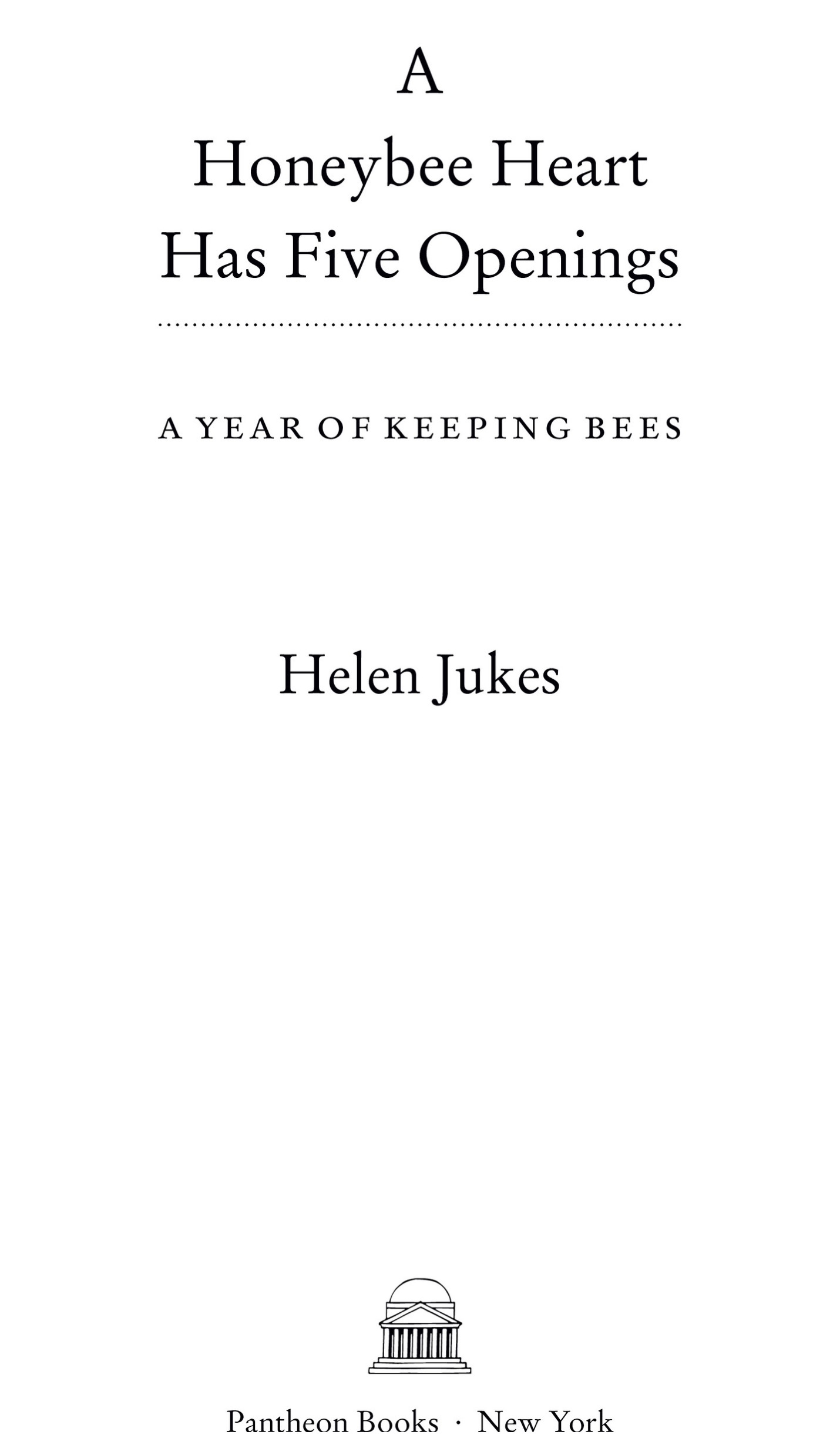
Copyright 2018, 2020 by Helen Jukes
All rights reserved. Published in the United States by Pantheon Books, a division of Penguin Random House LLC, New York, and distributed in Canada by Penguin Random House Canada Limited, Toronto. Originally published in hardcover, in slightly different form, in Great Britain by Scribner, an imprint of Simon & Schuster UK Ltd., in 2018.
Pantheon Books and colophon are registered trademarks of Penguin Random House LLC.
constitutes an extension of this copyright page.
Library of Congress Cataloging-in-Publication Data
Name: Jukes, Helen, author.
Title: A honeybee heart has five openings: a year of keeping bees / Helen Jukes.
Description: New York: Pantheon Books, 2020. Includes bibliographical references and index.
Identifiers: LCCN 2019024125 (print). LCCN 2019024126 (ebook). ISBN 9781524747862 (hardcover). ISBN 9781524747879 (ebook).
Subjects: LCSH: BeekeepersEnglandBiography. Bees. Bee culture. BeekeepersAnecdotes. Bee cultureHistory.
Classification: LCC SF523.82.J85 A3 2020 (print) | LCC SF523.82.J85 (ebook) | DDC 638/.10942dc23
LC record available at lccn.loc.gov/2019024125
LC ebook record available at lccn.loc.gov/2019024126
Ebook ISBN9781524747879
www.pantheonbooks.com
Cover photograph by Antagain / Getty Images
Cover design by Jenny Carrow
ep_prh_5.5.0_c0_r0
CONTENTS
The day the idea arrives I am wanting badly to escape. Home from work and too wound up to stay inside, I open the back door, step out. A nerve at the back of my eye buzzes as if the whirr of the computer screen has got inside my head. My shoulders are hunched and my neck is stiff. A thick wad of muscle has bunched itself at the top of my spine and now I knead it with my knuckles, hard.
Im tired. And Im still wearing my work shoes, which are not made for walking about in a frosty garden, at dusk. But this evening I need to cover some groundto get somewhere else, not here. In the back garden of an end-terrace on a busy road leading out of Oxfords city center you can only get so far. I count the strides, and make fifteen. Past the shed with a vine like a trailing wig and the pond silted with fallen leaves. Along the wall adjoining our neighbors garden, which crumbles slightly when you touch it. Near the end of the garden this wall gives out altogether and becomes high beech hedge. Here is a compost bin, and then a thicket of weeds.
I moved in recently, with my friend Becky. Id been offered a job working for a charity in Oxford just as the last project Id been working on in the South of England was drawing to a close. The new one was a permanent contract, and after a lot of moving around over the last few years, that felt like an opportunity; a chance to stay in one place, maybe even settle down a bit. When I called Becky and told her I was moving to the area, she suggested we get somewhere together. So then we found this place. A redbrick two-story with clothes moths in the carpets and a narrow garden at the back thats grown overcrowded with weeds. That was a few months ago, and it hasnt been an outright success so far. The jobs been tough, and Ive been struggling with the workload. Wishing I had a thicker skin, and was better at managing things like office politics and fluorescent lightbulbs and those desk chairs with the seats that spin and spin. Last week, a colleague told me that both my predecessors quit when they hit overload, and it was clear from her face as she took in my rather diminutive frame that she was not expecting the story to be any different this time around.
At the far end of the garden is a wooden fence. Its hidden behind a loping conifer and dried-up gooseberry bushes, hidden again under a mess of brambles, so you wouldnt know its there or quite where the garden endsexcept for a gap to one side, between a holly bush and a bird feeder, where you can see it. I squeeze through, and touch the fence. Tiptoe up, but I cant see over it. And now for one moment, maybe two, sheltered by the holly, which also pricks my thighs, I forget where I am. Forget the house that doesnt feel like home yet, and the hectic work schedule. This is when the idea arrives. Here is where the bees would be, I think, and then catch myself thinking it. Step back with surprise. It used to be a habit, looking for gaps like this. Its been a while since I remembered it. But now I begin checking for prospect, wind exposure, the damp. I glance up, to where the trees wont shadow them. Theres a warehouse roof some distance away, the sun sinking. A plop behind me, as a raindrop falls.
I learned a bit about beekeeping a few years ago when I lived in London, where I met Luke, a friend of a friend, who had hives all over the city. His beekeeping began as a hobby: he was given a small plot at the Natural History Museum in exchange for a pot of honey each yearbut then it grew. Soon he was being approached by other companies who wanted to keep bees, and they were offering to pay him. By the time I moved to London and asked for an introduction he had hives at magazine and fashion houses, pubs, hotelshe was keeping the bees and training the staff until they could do it for themselves.
The first time we met, Luke was wearing a cream three-piece suit, a pink shirt and a summer boater, and he was swinging a blue IKEA bag. He exuded charmHelen! he beamed when he saw me. How wonderful to meet you! We were outside Corams Fields, a childrens park in central London, where he kept two hives in a thin strip of undergrowth behind the caf.
So you want to see some bees? he said, and I nodded. Underneath his hat was a head of short gray hair. He looked a bit like a mole, I thought, as I spied metal contraptions and gauze masks inside the bag. Some people believe that bees can smell your fear, he said, as he unlocked a gate in the iron railings and we followed a gravel path around. So as we pulled on our suits I concentrated on not being afraid, but when he lifted a hive lid and they began seething out I was terrified.
I hadnt even realized until that day that honeybees are different from bumblebees; that there are over twenty thousand species of bee in the world, and only a small fraction of them make honey. Apis mellifera, Luke announced, as though introducing an old friend. Thats the western honeybee, and the one most extensively kept and bred.
These bees were not fuzzy and they were not soft. They were brittle and trembling and when Luke lifted the hive lid they didnt buzz, they hummedlike a machine but more unstable, more liable to volatility. Beneath the lid the space was packed with wooden frames hanging perpendicular to the roofline, each one filled to its edges with comb covered and crawling with bees.
Look, Luke said as he lifted a frame out, pointing first to where the queen had laid eggs inside the cells, then to where the workers had stored pollen for feeding young larvae, and finally to where nectar was undergoing its conversion to honey. Honeybees are among the few species of bee to live together as a colonyeven bumblebees, who are social in summer, reduce down to a single queen in winter. They work to produce as much honey as they can while flowers are blooming, so as to sustain themselves through the cold season.
They were crowding from the frames and from the entrance. We had unsettled them, and now they wanted to unsettle us in return. I glanced over at Luke, who was working calmly and swiftly, with an ease I hadnt noticed before.
Font size:
Interval:
Bookmark:
Similar books «A Year of Keeping Bees»
Look at similar books to A Year of Keeping Bees. We have selected literature similar in name and meaning in the hope of providing readers with more options to find new, interesting, not yet read works.
Discussion, reviews of the book A Year of Keeping Bees and just readers' own opinions. Leave your comments, write what you think about the work, its meaning or the main characters. Specify what exactly you liked and what you didn't like, and why you think so.

